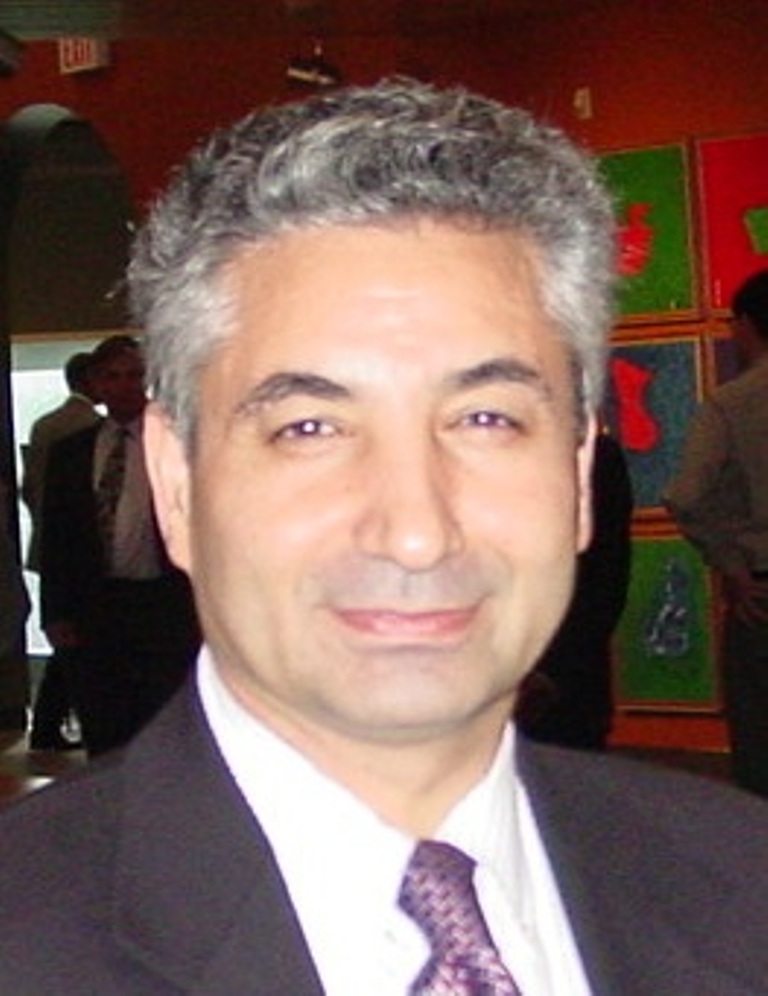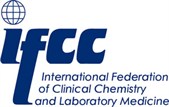Prof Khosrow Adeli, IFCC President
Khosrow Adeli PhD, FCACB, DABCC, FAACC

Pediatric Laboratory Medicine
The Hospital for Sick Children
University of Toronto
555 University Avenue
Toronto, Ontario, M5G 1X8
Canada
e-mail: president@ifcc.org
Professor Adeli is the Head of Clinical Biochemistry in the Department of Paediatric Laboratory Medicine as well as a Senior Scientist in the Molecular Medicine Program of the Research Institute at the Hospital for Sick Children. He is also Vice-Chair of Quality and a Full Professor in the Department of Laboratory Medicine & Pathobiology at the University of Toronto in Toronto, Canada. He is very well known for his extensive national and international contributions over the past 30 years to clinical laboratory service, research, and education. Now, as President of the IFCC, his focus is on continuing the IFCC’s journey towards global leadership in laboratory medicine by directly impacting healthcare and patient outcomes through efforts such as global newborn screening, directly contributing to global lab quality, becoming the largest provider of free eLearning, and ultimately continuing to promote the value of laboratory medicine worldwide.
Key Highlights of Professor Adeli’s Qualifications:
- Past Chair (2013 - 2018) and Vice-Chair (2006 - 2012) of IFCC Communications & Publications Division
- More than 30 years of clinical chemistry academia and scientific experience in leadership positions
- Internationally recognized for outstanding contributions to clinical chemistry research, education, and service
- Prominent researcher with >600 peer-reviewed articles and abstracts, with >27,000 citations to published work, and many invited presentations
Leadership Positions:
- President, IFCC (2020 - 2023)
- Chair, IFCC Communications and Publications Division (2013 - 2018)
- Chair, IFCC Public Relations Committee (2007 - 2012)
- Board of Directors, AACC Academy (2015 - 2018)
- Editor-in-Chief, Critical Reviews in Clinical Laboratory Sciences (2013 - present)
- Scientific Advisory Board, International Centre in Genetic Engineering and Biotechnology (2009 - 2018)
- President, Commission on Accreditation in Clinical Chemistry (2007 - 2010)
- Editor-in-Chief, Clinical Biochemistry (1999 - 2006)
Research & Education:
- Over 30 years of basic and clinical laboratory research experience in the area of cardiovascular disease, type 2 diabetes, and lipid & lipoprotein metabolism
- Scholarly Impact (Google Scholar Statistics): h-index of 73 and i10-index of 273, with over 27,000 citations
- Development of the Canadian Laboratory Initiative on Pediatric Reference Intervals (CALIPER), the world-leading database of child and adolescent reference ranges adopted by clinical laboratories in over 100 countries worldwide
- Program Director of the Postdoctoral Training Program in Clinical Chemistry at the University of Toronto for 20 years (2000 - 2020)
- Trained over 50 clinical chemistry fellows, many of whom hold prominent positions in laboratories globally
International Award Recognition:
- 2020 Richard G. Hegele Award for Excellence in Research Innovation, Laboratory Medicine & Pathobiology, University of Toronto
- 2019 AACC Norman P. Kubasik Award
- 2019 AACC Academy Award for Outstanding Contributions to Clinical Chemistry
- 2018 Hungarian Academy of Laboratory Medicine Honorary Membership Award
- 2015 AACC Pediatric-Maternal-Fetal Division Award
- 2015 Ontario Society of Clinical Chemistry (OSCC) Lifetime Achievement Award
- 2015 Canadian Society of Clinical Chemistry (CSCC) Award for Innovation in Laboratory Medicine
- 2012 CSCC Award for Education Excellence
- 2010 ComACC Service Award
- 2006 CSCC Award for Outstanding Contributions to Clinical Chemistry
- 2004 Canadian Academy of Clinical Biochemistry (CACB) Award for Outstanding Contributions to Clinical Biochemistry
Contributions to IFCC and its Membership:
Professor Adeli recently completed a 12-year term on the IFCC Communications and Publications Division (CPD). He initially served as CPD Vice-Chair and later as Chair for 6 years. CPD is responsible for all IFCC publications and communication activities including the eNews, eJournal, website, eAcademy/eLearning, and public relations activities. During his term as Chair, he worked closely with the CPD executive, committees, and working groups and played a leadership role in significantly enhancing publication and communication activities of the IFCC organization. Key achievements of the CPD during Professor Adeli’s leadership include:
- Creation of a Public Relations (PR) Committee and a global PR campaign on the value of lab medicine in healthcare
- A new and much improved IFCC Website
- An expanded and improved eNewsletter now published monthly
- Successful indexing of the electronic journal, eJIFCC
- Development of the eAcademy distance learning platform
- Development of an IFCC Mobile App to facilitate ready access to IFCC media
- Support of an enhanced DIV magazine for member societies across Latin America
Professor Adeli has also directly interacted with and personally knows IFCC national representatives from around the world as well as corporate members. As a result of his IFCC contributions and research achievements, he has been invited to deliver numerous presentations to IFCC national societies and/or regional/international conferences. He has therefore developed strong relationships with many IFCC member societies as well as many IFCC officers within the IFCC organization.
Personal Statement:
I am passionate about laboratory medicine and the opportunity to more extensively collaborate across our global communities to inspire and drive value to the profession and across healthcare. My considerable experience with the IFCC organization, numerous collaborations with IFCC members and member countries, as well as my productive track record during my term as IFCC division chair all collectively support my long-standing commitment and success to date.
The future holds considerable promise for the IFCC organization and its family of national societies and corporate members. I look forward to being part of the IFCC’s continued journey towards global leadership in lab medicine, contributing to its most valuable mission of advancing excellence in laboratory medicine for better healthcare worldwide.
Future Vision for the IFCC Organization:
I strongly believe that the IFCC organization is in a unique leadership position to:
- Directly impact healthcare and patient outcomes by working with developing countries around the world to advance programs such as Global Newborn Screening.
- Directly contribute to global lab quality by:
- developing an international IFCC External Quality Assurance program and innovative quality improvement strategies to disseminate the concept of total quality management and quality systems approach to clinical laboratories and national societies, particularly in developing countries.
- developing a global consortium on reference intervals for adult and paediatric populations, facilitating harmonization as a long-term goal.
- Become the largest provider of free Distance Learning/eLearning in the field of laboratory medicine worldwide. Through the new eAcademy platform and its vast network of experts, IFCC can develop the most comprehensive database of eLearning programs to support education by its member societies particularly in developing countries.
- Continue to promote the value of laboratory medicine by gathering the evidence to demonstrate the value of lab medicine in clinical decision making and healthcare delivery, communicating this to the public and all stakeholders.
- Encourage and support a culture of innovation in the IFCC community and communicate technological and process innovations to laboratory scientists and physicians globally. In association with regional federations, member societies, young scientists, and corporate members, ensure that IFCC is a driver of technological innovations, such as artificial intelligence and machine learning, and their application in laboratory medicine.
- Become the leader in developing practice guidelines to ensure optimal application and utilization of diagnostic services and improved clinical decision making using IFCC’s extensive and wide-ranging scientific expertise.
Together, Professor Adeli and the IFCC Executive Board have designed a strategic plan that encompasses these aims, setting the tone for a very productive period from 2021 - 2023.
